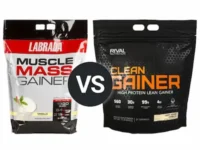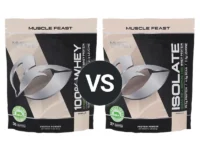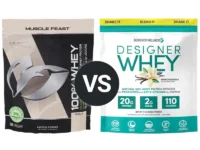Knowledge BaseYou're Questions Answered
BACK
Are kosher protein powders more expensive?
Kosher protein powders can be more expensive than non-kosher counterparts, but this difference in cost depends on various factors. Here's an explanation of why kosher protein powders may come with a higher price tag and what contributes to the difference in cost.
Factors Affecting the Price of Kosher Protein Powder
- Certification Costs: To be certified kosher, protein powder manufacturers must adhere to strict guidelines set by kosher certification organizations. This process requires rigorous inspection, additional documentation, and ongoing compliance, which can increase manufacturing costs1.
- Ingredient Sourcing: Kosher certification not only applies to the final product but also to all individual ingredients. Manufacturers may have to source ingredients from certified kosher suppliers, which could be more expensive than non-certified alternatives2.
- Production Process: The entire production process, from equipment cleaning to storage and packaging, must meet kosher standards. Dedicated equipment or separate production lines may be required, leading to higher operational costs3.
- Market Demand: The market demand for kosher products often comes from specific consumer groups who are willing to pay a premium for certified products. This niche demand can sometimes justify the higher pricing of kosher protein powders4.
Benefits of Kosher Protein Powder
- Strict Quality Control: The stringent guidelines followed during kosher certification often result in higher overall quality and safety standards for kosher protein powders.
- Dietary Inclusivity: Kosher certification ensures that the product is suitable for those following kosher dietary laws, and is often seen as a marker of quality for those with specific dietary needs.
- Transparency and Trust: Kosher-certified products often include clear labeling, providing consumers with more confidence in the sourcing and processing of ingredients.
While kosher protein powders can sometimes be a little more expensive due to certification, sourcing, and production factors, many consumers find the higher cost worth it for the quality assurance and adherence to dietary requirements.
Was this answer helpful? Let us know!
Like
References:
- Star-K. (2022). Kosher Certification.
- Kosher Certification Service. (2022). Certification Process Overview.
- Kosher Council of America. (2022). Kosher Certification: What, Why, and How?
- The Orthodox Union. (2021). Market Demand for Kosher Products.
Add to this Answer

Disclosure
Your Answer
Do you have a suggestion to improve the answer? Please detail your suggestions and provide any references to information that may support your answer if available.
The content on this site has not been written, reviewed or endorsed by a medical professional. We assume no liability for the misuse of supplements and recommend you review the label of any product, as well as consulting with your health care professional.
We are a participant in the Amazon Services LLC Associates Program, an affiliate advertising program designed to provide a means for us to earn fees by linking to Amazon.com and affiliated sites.
We are a participant in the Amazon Services LLC Associates Program, an affiliate advertising program designed to provide a means for us to earn fees by linking to Amazon.com and affiliated sites.
© 2025 ProteinPowder.com


